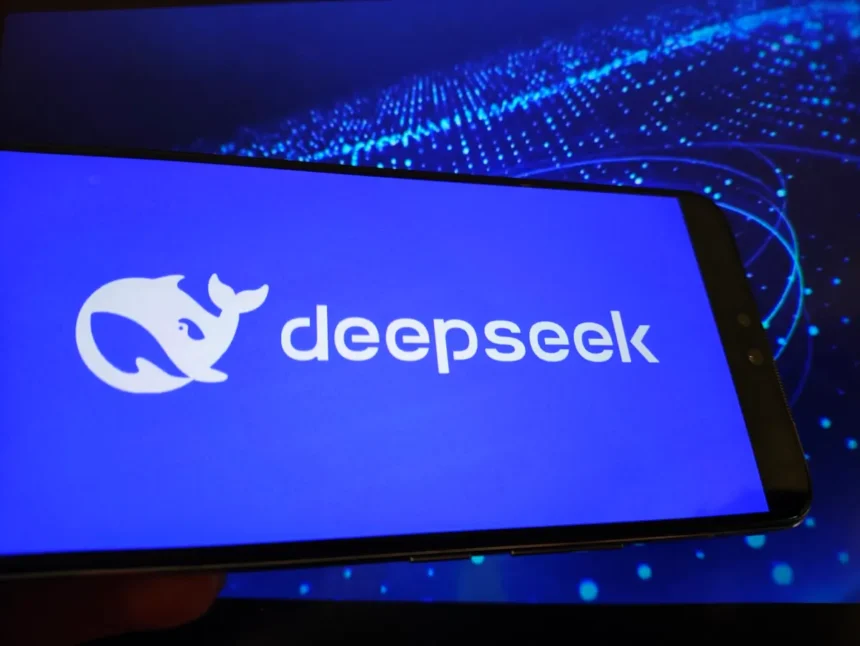In a decisive move to safeguard user privacy, South Korean authorities have temporarily restricted the download of Chinese AI Lab DeepSeek’s app from local app stores. The Personal Information Protection Commission (PIPC) announced that the ban would remain in place until DeepSeek complies with South Korea’s stringent data protection regulations and implements the necessary modifications.
While the restriction affects new downloads, existing users can continue using the app and web service without interruption. However, the data protection authority has issued a strong advisory, urging current users to refrain from entering personal information into the DeepSeek platform until a final determination is made regarding its compliance with privacy laws.
Privacy Concerns and Regulatory Scrutiny
DeepSeek, which entered the South Korean market in late January, quickly came under scrutiny from regulators. The PIPC initiated an inquiry into the company’s data collection and processing methods, ultimately identifying several concerns related to its third-party services and privacy policies. One of the key findings of the investigation was that DeepSeek had transferred data from South Korean users to ByteDance, the Chinese technology giant behind TikTok.
Authorities have underscored the importance of transparency in how foreign AI services handle personal data, especially given the rising concerns surrounding data security and foreign influence. South Korea’s regulatory landscape is particularly stringent when it comes to the protection of personal information, and companies operating within its borders are expected to adhere strictly to these standards.
DeepSeek’s Response and Compliance Efforts
Following the PIPC’s inquiry, DeepSeek acknowledged its lack of familiarity with South Korean privacy laws at the time of its launch. In an effort to rectify the situation, the company has recently appointed a local representative to navigate regulatory requirements. Moreover, DeepSeek has expressed its willingness to work closely with South Korean authorities to ensure compliance.
Despite these assurances, regulatory bodies remain cautious, and the app will not be reinstated on local app stores until all necessary adjustments are verified. The outcome of this review will determine whether DeepSeek can continue expanding its footprint in the South Korean market or face further restrictions.
Growing Global Scrutiny of DeepSeek
South Korea is not alone in raising concerns about DeepSeek’s operations. Several other countries have taken precautionary measures against the Chinese AI startup due to security and privacy considerations.
- Australia has prohibited the use of DeepSeek on government devices, citing national security risks.
- Italy’s data protection authority, the Garante, has instructed DeepSeek to block its chatbot services in the country until further notice.
- Taiwan has outright banned government departments from using DeepSeek AI.
Closer to home, South Korea’s Ministry of Trade, Industry, and Energy, along with law enforcement and state-run entities such as Korea Hydro & Nuclear Power, have temporarily blocked access to DeepSeek on official devices due to security concerns.
The Rise of DeepSeek and Its Competitive Edge
DeepSeek, founded in 2023 by Chinese entrepreneur Liang Feng, has positioned itself as a formidable competitor in the AI space. The Hangzhou-based company has made significant strides in artificial intelligence, notably with the release of DeepSeek R1, an open-source reasoning AI model that aims to rival industry leaders like OpenAI’s ChatGPT.
Despite its rapid rise, DeepSeek now faces mounting challenges as more countries scrutinize its data handling practices. With increasing global awareness of digital privacy and cybersecurity risks, AI companies—especially those with foreign ties—are under growing pressure to ensure transparency and compliance with local regulations.
What’s Next for DeepSeek in South Korea?
The resolution of DeepSeek’s compliance issues will be pivotal in determining its future in South Korea. If the company successfully aligns with local data protection laws and addresses regulatory concerns, it may regain access to the country’s app stores and resume expansion efforts. However, failure to meet these standards could result in prolonged restrictions or even a complete ban.
As AI technology continues to evolve, governments worldwide are taking proactive measures to ensure that user data remains protected. The case of DeepSeek highlights the broader conversation about data privacy in the era of artificial intelligence, emphasizing the need for clear regulations and responsible AI governance.
For South Korean users and regulators alike, the coming weeks will be crucial in shaping the nation’s stance on foreign AI applications and their compliance with national security and privacy standards.










